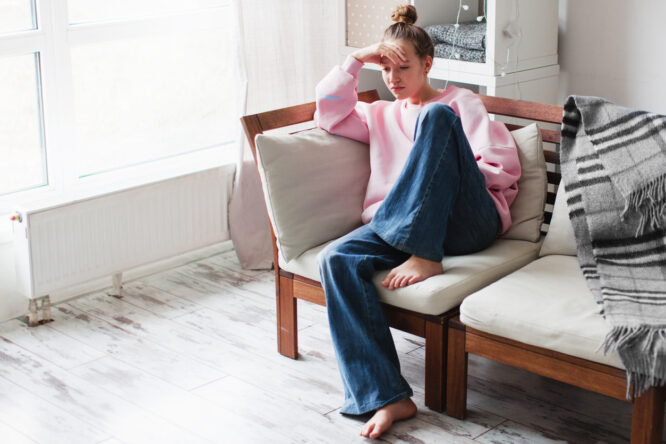British politeness is famous, but not always in the way we think.

Sometimes it’s genuine. Other times, it’s a seemingly polite disguise for discomfort, sarcasm, or low-level passive aggression. We’ve mastered the art of sounding pleasant while secretly ducking drama and confrontation, or dishing it out with a smile. Here are just some of the things we tend to do to be “courteous” that are actually a bit rude when you look closer.
1. Saying “interesting” when we mean “what on earth is that?”

It’s the polite way to avoid giving an opinion. Someone shares a weird dinner combo, an abstract painting, or an outfit that looks like it lost a fight with a curtain—and we smile and say, “Interesting.” To anyone not raised here, it sounds open-minded. But every Brit knows it’s usually code for “I would never say this to your face, but I do not rate that at all.”
2. Pretending not to see someone you know

We do it on buses, in Tesco, on the high street. You spot someone you vaguely know, panic at the thought of a forced conversation, and suddenly become fascinated by the cereal aisle or your own shoelaces. It’s technically not rude because you didn’t say anything. However, let’s face it—it’s socially evasive and awkward, and the other person probably saw you blank them anyway.
3. Using “with all due respect” before saying something disrespectful

It sounds like a polite cushion, but everyone knows it’s a red flag. Whatever’s coming next is going to be blunt, cutting, or just plain rude, but because you added “with all due respect,” it’s apparently fine. It’s like opening a boxing match with a handshake, then immediately swinging for the jaw. Polite on paper, but in reality? Not so much.
4. Saying “no worries if not” when we’re actually annoyed

This phrase has become the British way of sounding breezy while silently seething. You ask for a favour, don’t hear back, and drop a “just checking in, no worries if not!” like you’re the picture of patience. However, deep down, it’s not breezy at all. It’s often laced with passive aggression—translation: “You’ve had time to watch six episodes of telly but can’t reply to my message?”
5. Apologising instead of saying what we actually think

We’ll say “sorry” when someone bumps into us, “sorry” when we disagree, “sorry” when we’re asking for what we paid for. But behind all that politeness is often a fear of confrontation—or worse, a bit of condescension. It sounds gentle, but sometimes we apologise so much it’s more about silencing ourselves than smoothing things over. It can (and often does) come off as frustratingly avoidant.
6. Avoiding direct compliments (because that would be too much)

Instead of saying, “You look great,” we’ll go with, “You scrub up alright,” or “Look at you!” in a vaguely surprised tone. It’s meant to be friendly, but often sounds like backhanded praise. We’re so allergic to sounding too enthusiastic that even compliments get watered down until they’re barely recognisable. It can leave people wondering if we’re joking or just a bit judgy.
7. Making “helpful” suggestions that are thinly veiled criticism

You’ll hear this in workplaces and family kitchens across the country. “Have you thought about doing it this way?” or “Just a suggestion, but maybe try it like this?” It’s rarely just a suggestion. It’s often a soft-edged way of saying, “You’re doing this wrong, and I’m going to fix it without sounding too bossy.”
8. Not asking personal questions, then judging you silently

We pride ourselves on giving people their space. We won’t pry, we won’t poke, we won’t ask about your finances or your relationship unless invited. But don’t be fooled. Just because we’re not asking doesn’t mean we’re not quietly analysing your every move over a cup of tea and a raised eyebrow.
9. Saying “Let’s catch up soon” with no intention of doing so

It’s the classic British exit line. You’ve run into an old mate, made awkward small talk, and as you leave, out comes the “Let’s definitely catch up soon!” with fake enthusiasm and zero follow-through. We don’t mean to lie—we just want to end the chat on a polite note. But let’s be honest, we’re never scheduling that pint.
10. Laughing politely instead of admitting we didn’t hear

We miss what someone said in a loud pub or at a noisy dinner, but instead of asking them to repeat it, we just chuckle awkwardly and hope it wasn’t a question. It seems polite, but it’s a conversational gamble—and when we get it wrong, it’s clear we weren’t listening at all.
11. Queue shaming without saying a word

If someone cuts the line, we won’t always speak up, but you’ll feel the full weight of our judgement through sharp eye rolls and the distinct British exhale of disbelief. It’s not loud or confrontational. It’s quiet, passive, and absolutely loaded with disapproval. It’s basically a silent public scolding.
12. Offering to make tea instead of dealing with feelings

When someone’s upset, we don’t dive in with emotional support. We put the kettle on. It’s our way of saying, “I care, but I have no idea how to handle this emotionally.” It’s comforting, sure, but it can also be a way of sidestepping actual vulnerability. Warm beverage in hand, feelings firmly dodged.
13. Using sarcasm as a default setting

We’ll say “Well done, genius” when someone makes a mistake, or “Oh brilliant!” when something goes horribly wrong. It’s meant to be funny, but it can come off as unnecessarily biting. To outsiders, it sounds rude. To us, it’s just how we cope. But when overused, it stops being humour and starts sounding genuinely cold.
14. Being overly polite to people we can’t stand

You can always tell when a Brit truly dislikes someone because they’ll turn the politeness up to maximum. The fake smile gets wider, the voice gets sweeter, and the sarcasm starts dripping through the cracks. We don’t do full-blown confrontations—we do slow burns, social niceties, and pointed over-friendliness that says, “I hope you trip on your way out, but I’ll hold the door for you.”




